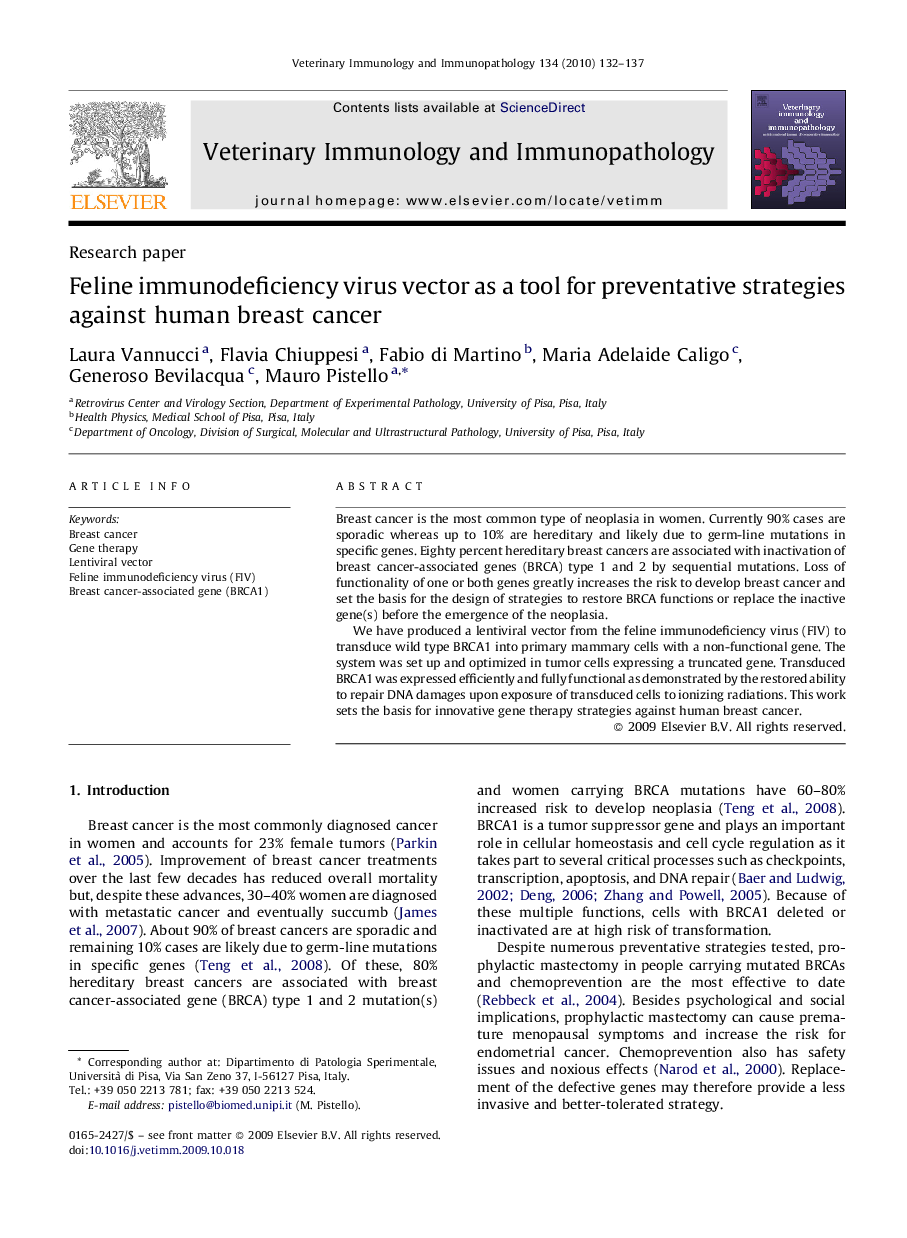| Article ID | Journal | Published Year | Pages | File Type |
|---|---|---|---|---|
| 2462558 | Veterinary Immunology and Immunopathology | 2010 | 6 Pages |
Breast cancer is the most common type of neoplasia in women. Currently 90% cases are sporadic whereas up to 10% are hereditary and likely due to germ-line mutations in specific genes. Eighty percent hereditary breast cancers are associated with inactivation of breast cancer-associated genes (BRCA) type 1 and 2 by sequential mutations. Loss of functionality of one or both genes greatly increases the risk to develop breast cancer and set the basis for the design of strategies to restore BRCA functions or replace the inactive gene(s) before the emergence of the neoplasia.We have produced a lentiviral vector from the feline immunodeficiency virus (FIV) to transduce wild type BRCA1 into primary mammary cells with a non-functional gene. The system was set up and optimized in tumor cells expressing a truncated gene. Transduced BRCA1 was expressed efficiently and fully functional as demonstrated by the restored ability to repair DNA damages upon exposure of transduced cells to ionizing radiations. This work sets the basis for innovative gene therapy strategies against human breast cancer.
